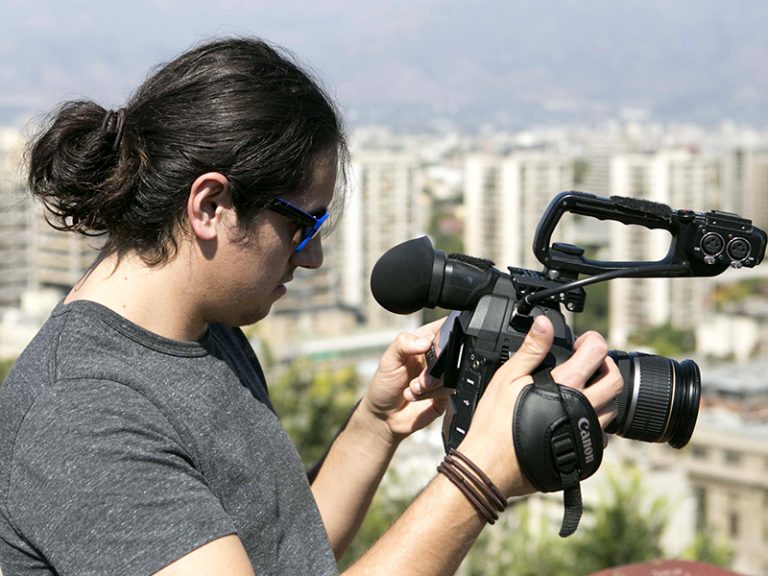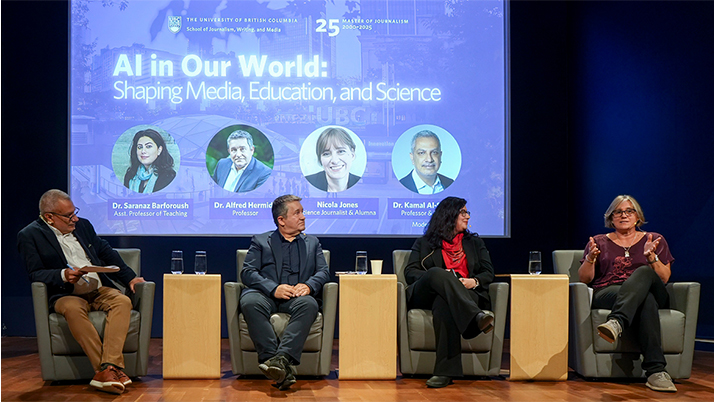

Over almost a decade, students and faculty have traveled internationally to produce major stories for the International Reporting Program (IRP).
The published projects only showcased a fraction of the terabytes of video shot by students and faculty.
This rich archive of video has been made readily available for free with UBC School of Journalism’s new Global Reporting Archive.
The material include scenes in Brazil, Chile, Ghana, Indonesia and Uganda for stories about e-waste, food safety and security and illegal logging, among others.
“We thought, ‘Do we have a greater responsibility here?’” said UBC Journalism associate professor Peter Klein, who founded and oversees the International Reporting Program.
“We’re using public funding because we’re a university and we’re using philanthropic funding. So how can we make the best use of this material?”
- International Reporting class reports on global mental health
- $1M gift creates ground-breaking International Reporting course
Users — such as media organizations, documentary producers and students — can browse the curated collection on Vimeo and directly download the footage.
The footage is available under a Creative Commons license that allows others to use and edit the material for non-commercial use. The entire catalog of raw material is also available through an online request form.
“The breadth and depth of the video captured by students over almost a decade is impressive,” said School of Journalism director and associate professor, Alfred Hermida. “By sharing the archive, we are unlocking the richness of our student work and giving back to the journalistic community.”
Putting it all together
The archive’s launch caps off years of painstaking work by faculty, staff and students at the School, led by Klein. The creation of the video library was supported by a grant from Alison Lawton and the Mindset Social Innovation Foundation — which also funded IRP.
Students worked on organizing the archive, which involved adding metadata tags to every single clip. They also migrated the terabytes of footage from old to new servers.
Klein worked with Prof Luciana Duranti — an archivist in the School of Library and Information Studies — and her graduate students to explore the legal and ethical aspects of archiving.
“When you go into the field, you capture your material and you disclose that this is going to be utilized,” Klein said. “But in five, 10 or 50 years from now, is that person going to want that material used?”
This year, international reporting students are travelling to Turkey to report on the refugee situation.


